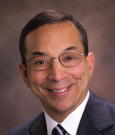As defined by the U.S. Health Resources and Services Administration teleheath is “the use of electronic information and telecommunications technologies to support long-distance clinical health care, patient and professional health-related education, public health, and health administration.” It has become the fastest growing segment of the health-care economy, with estimates of 50% growth annually over the next 5 years.
According to the American Telemedicine Association, telemedicine is defined as “the use of medical information exchanged from one site to another via electronic communications to improve a patient’s clinical health status. Telemedicine includes a growing variety of applications and services using two-way video, email, smart phones, wireless tools and other forms of telecommunications technology.”
Bringing Health Care to the Patient
Telemedicine is being used for the care of patients in nearly every medical discipline. The reason for the incredible increase in its use across all areas of health care is the need to provide convenient access to affordable quality care. The fundamental change needed to achieve this goal is to bring health care to the patient and not the patient to health care.
Health care in the United States is the best that money can buy. Unfortunately, America is running out of money. Therefore, efficiencies must be brought to bear without sacrificing quality. Telemedicine is one of the prime efficiencies.
Two studies recently reported in the Journal of Clinical Oncology and reviewed in this issue of The ASCO Post indicate that telephone-based education or counseling initiatives can be successful in educating individuals at familial or genetic risk of cancer and in inducing these at-risk individuals to undergo recommended screening.
Reaching Out to Those at Risk
In one study (Family CARE trial), Kinney and colleagues found that a telephone-based strategy was effective in improving the colonoscopy screening rate in at-risk relatives of colorectal cancer patients.1 In another, Schwartz and colleagues found that telephone genetic counseling for BRCA1/2 mutation testing was noninferior to in-person counseling in the primary measures of knowledge, satisfaction, decision conflict, distress, and quality of life, but did not achieve equivalence with in-person counseling in test uptake.2
In the first study, relatives of patients with colorectal cancer were contacted and given appropriate information and asked to enroll. These at-risk individuals were offered a colonoscopy. Twice as many patients in the TeleCARE group, receiving telephone-based risk assessment and counseling, had a colonoscopy by the endpoint of the study (9 months) than in the control group receiving a mailed educational brochure.
Thus, the study demonstrated the potential advantage of reaching out to the at-risk patients. One of the inclusion criteria, having relatives with previous colorectal cancer, required the patients to give the names of their relatives. Privacy issues were not discussed, although there was a reference to recruitment details in another of the Kinney et al papers.
In the second study, by using telemedicine as compared to face-to-face interviews, Schwartz and colleagues were unable to increase the number of individuals at risk for breast cancer who obtained genetic testing.2 They concluded it was possible that since the individuals interviewed through telemedicine were not face-to-face, they had a chance to reject the idea of genetic testing by cheek swab.
Alternative Conclusion
This brings up an interesting alternative conclusion: The face-to-face subjects may not have wanted the genetic testing but felt compelled, constrained, or obligated to have it done, even if they felt uncomfortable with the prospect. If they had been asked to return a day or even a number of hours later to be seen by another team member (or a “patient advocate”), perhaps the numbers of those choosing the cheek swab would have diminished.
Considering the two studies together, it is remarkable that a cheek swab was rejected but a colonoscopy was accepted. Schwartz et al thought that if the genetic testing kit were at home and ready for use at the time of the telemedicine interaction, the compliance rate would go up. Yet, perhaps there is another aspect of the two studies at play. Genetic testing might be less acceptable to the population than the prospect of using colonoscopy to determine whether pathology exists in the colon.
The interesting findings of these studies lead to new questions. However, there is no question that telemedicine has a significant place in health care today, and its influence will only grow with time. ■
Disclosure: Dr. Boxer served as Chief Medical Officer at Teladoc, a telemedicine company, from 2002 to 2013.
Dr. Boxer is Visiting Professor of Urology, David Geffen School of Medicine at UCLA, and Visiting Scholar, the Business of Science, UCLA. He is also Associate Editor, The ASCO Post. From 2006 to 2013, Dr. Boxer was the Chief Medical Officer at Teladoc, a telemedicine company and the nation’s largest telehealth provider.
References
1. Kinney AY, Boonyasiriwat W, Walters ST, et al: Telehealth personalized cancer risk communication to motivate colonoscopy in relatives of patients with colorectal cancer: The Family CARE randomized controlled trial. J Clin Oncol. January 21, 2014 (early release online).
2. Schwartz MD, Valdimarsdottir HB, Peshkin BN, et al: Randomized noninferiority trial of telephone versus in-person genetic counseling for hereditary breast and ovarian cancer. J Clin Oncol. January 21, 2014 (early release online).


